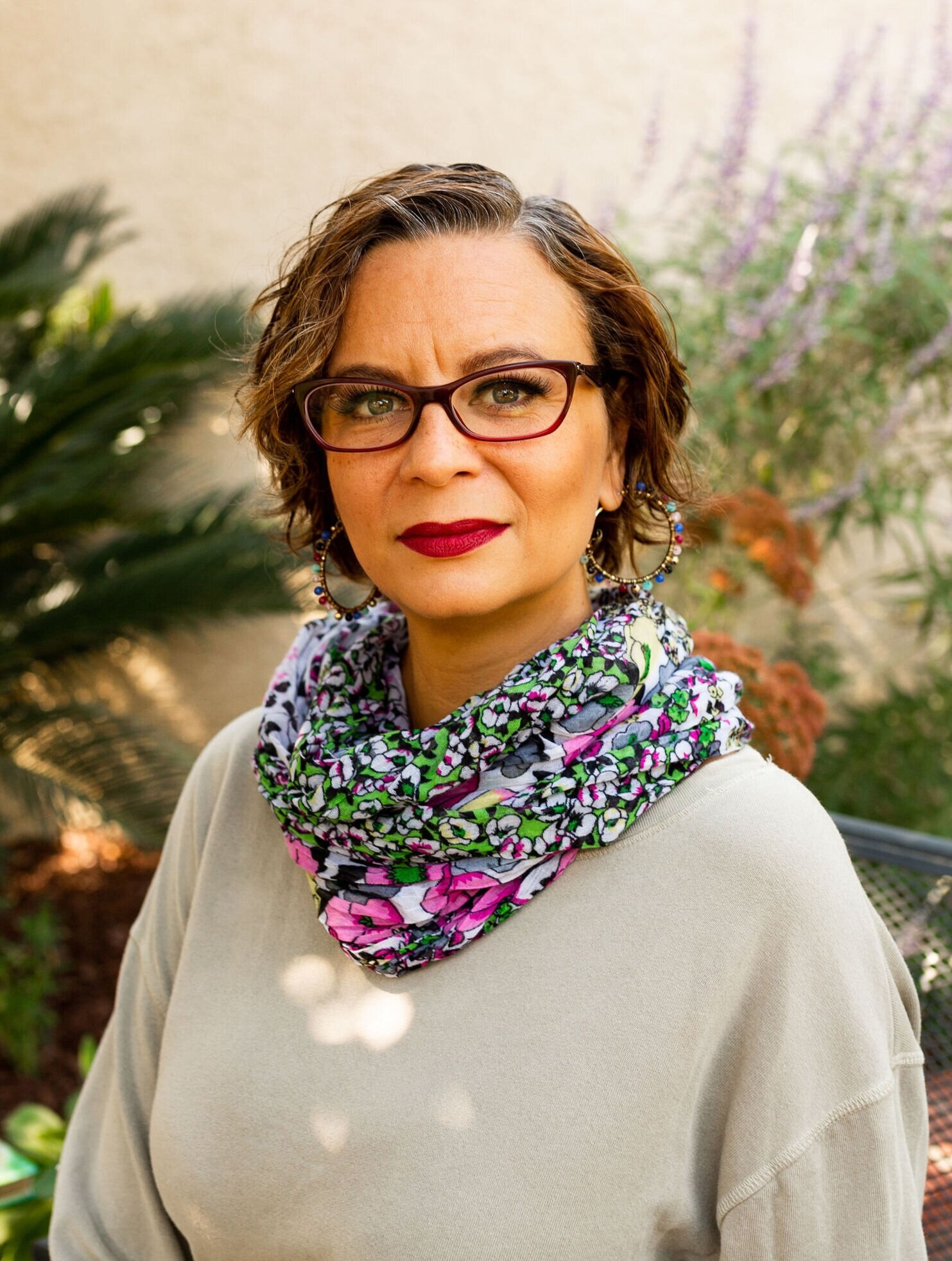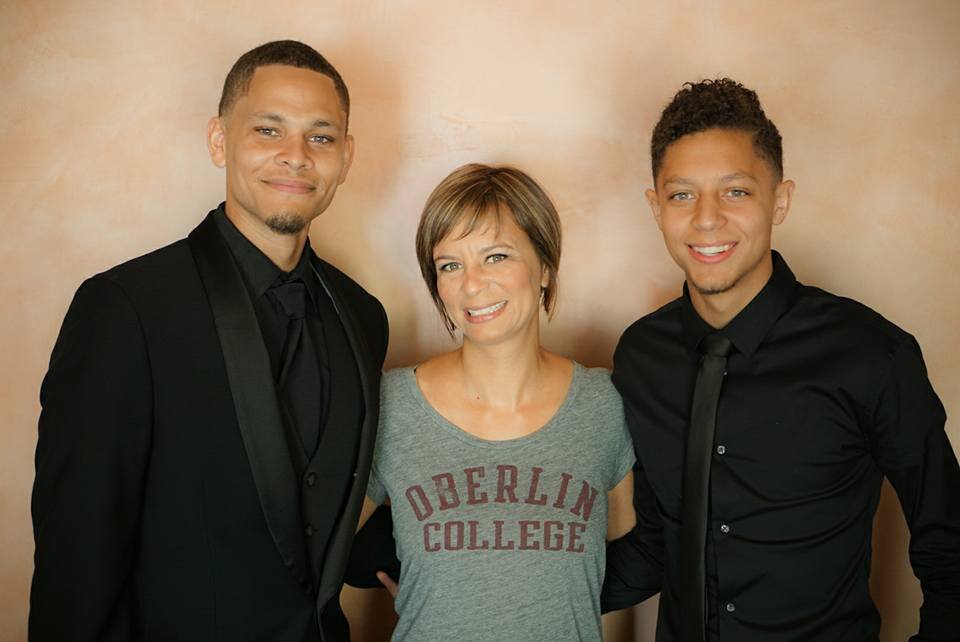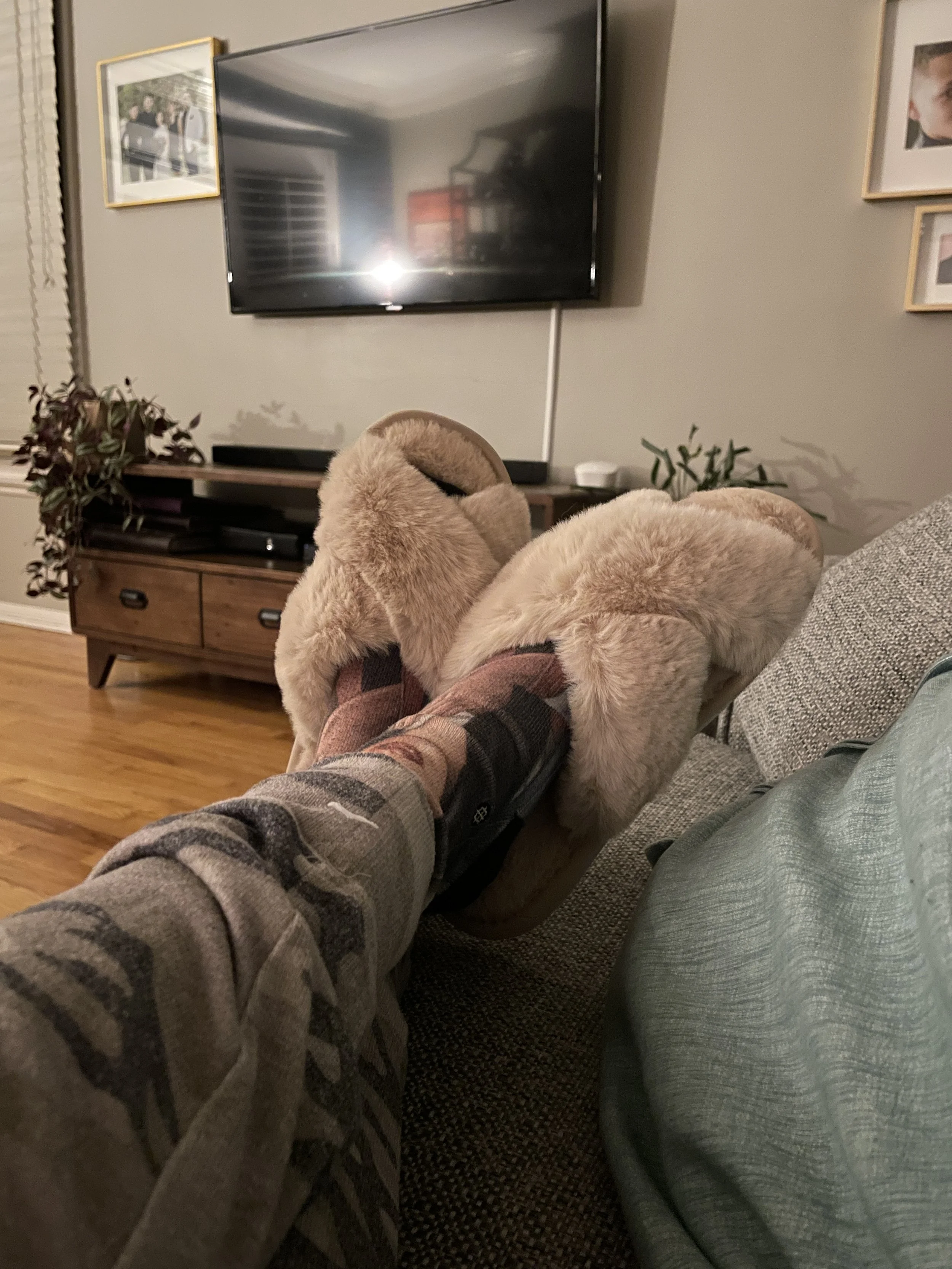Being Mixed in a Black and White World
Biracial but I identify as Black.
TUNE IN: APPLE PODCASTS I SPOTIFY I STITCHER
Although COVID-19’s forced isolation has been immensely difficult, it has had unexpected gifts. As I discussed in my previous post, one of the gifts has been finding and owning more of my voice and identity. Surprisingly, this was reinforced by the awakening of racial injustice to our American consciousness.
The events of 2020 gave me an opportunity to reflect more on my racial identity.
What it is, as well as when and how my racial identity was formed. In the related podcast episode, you can hear a biracial friend, Mikaela Clark, and I discuss this topic more.
When Americans talk about race issues, we tend to talk about it in a dualistic, black and white way. Rarely do we talk about the experience of those of us in the “other” category.
My mom is Black, and my dad was white. They were married and had me in 1974, just seven years after the Supreme Court decision to strike down state laws banning interracial marriage.
From an early age, I identified with being Black.
Several factors contributed to my identity as a Black woman. My mom and dad got a divorce when I was eight. And my dad went to prison when I was nine, so my mom raised us mostly alone. She’s a verbal processor so while she processed out loud, I learned firsthand about her experience as a Black woman and single mom on welfare.
A story that Mom often repeated left an indelible impression on me. I was three years old and a white woman complemented my suntan. When my dad didn’t correct her, Mom went off saying, “my baby doesn’t have a suntan, she’s Black.”
Mom often pointed out racist moments. She made sure I knew that no matter how white I looked; these things affected me too. Mom would say, “I’m Black, so you’re Black. If you have a drop of Black blood, you’re Black.” When I asked why she said it was “because of slavery.” She said that about a lot of things.
As a young girl, it was hard to see the correlation but years later, as a Black Studies student at Oberlin College, I learned that Mom was right. The “one drop rule” was one of the many racial constructs promulgated by the south to justify slavery. Children born of a Black woman, no matter who the father was, inherited her status as a slave. The master could save the cost of buying new slaves by impregnating or breeding his own slave. Later, the “one-drop rule” was used to reinforce Jim Crow segregation.
When I was fourteen, we moved from San Diego to Ohio to take care of my mom’s mom. Grandma Pandora was one of fifteen kids. Since all her siblings had kids and most still lived in our hometown, I was suddenly surrounded by my multi-hued Black family.
Meanwhile, on my dad’s side, Mom said my paternal grandparents didn’t want to know me because I was Black. I never met my dad’s dad. When I was a teenager, I visited my dad’s mom a couple of times. She was distant and awkward toward me. My dad’s brother and his wife visited once or twice when I was little and sent birthday cards. But we weren’t close. My Black family in Ohio was the only family I really knew.
I believe it was this mix of things, being raised by a mom who had a strong identity as a Black woman and being surrounded by my Black family that contributed to my identification as a Black woman.
Additionally, when I felt the hostility coming toward me as a teen mom as I stood in line for food stamps, I shared the experience of the low-income, under-privileged Black America I heard about from black authors and the poets of nineties hip hop.
However, I didn’t feel comfortable voicing my identity as a Black woman.
When I identified myself as Black to people, I learned that people had different opinions about what being Black means. Saying that I was Black as opposed to “mixed with black” opened me up to painful rejection by whites and other Blacks albeit in vastly different ways.
When I first tell white people, they look at me as if they are seeing me for the first time.
They go from shock to awe that, if they’d befriended me, turns into a sense of pride. Like, “wow, I’ve made friends with a black person.” Even in progressive circles, I’m reduced to my race and now treated like an “other.”
Once that happens, interactions are peppered with microaggressions. I hear things like “you’re so smart, I don’t even think of you as black.” Or, holding their arm up to mine, “I’m darker than you!” Or “can I touch your hair to see if it feels as much like white people’s hair as it looks?” Or I’m simply ignored in predominately white social settings where the conversation is about things I don’t relate to like boating, vacation homes, and gluten-free food.
Unlike white people, Black people usually know that I have Black in me.
But I get the sense that they’re waiting to decide if they think I’m “black enough” to accept me as Black. If I tell a Black person I’m Black before I’ve had a chance to “prove it to them,” I open myself up for potential rejection.
I experienced this for the first time when we moved to Ohio. In high school, I gravitated toward the Black kids but being young and insecure and always moving schools, I waited to be invited in. The invitations weren’t readily extended but I wasn’t outwardly rejected either. Not until college.
Oberlin College is extremely liberal with a rich Black history. It’s one of the first colleges in the country to accept Blacks. I was there in the early nineties when Afrocentricity was popular. To give you some idea of my experience, one day I responded to a question a professor asked about the welfare system and its effects on the Black family structure. When I was done, a Black female student who shared after me started her statement with “Well, from a real Black woman’s perspective.”
The rejection that had always been so subtle was up-close and in my face.
From these two reaction types, I learned that rather than saying I’m Black, it was best to say I was “mixed with black and white” and see where the conversation went from there.
It’s hard to bring these issues up for fear of perpetuating stereotypes.
The “tragic mulatto” is a literary archetype from the 19th and 20th century of a mixed-race person, who is assumed to be sad, or even suicidal, because they fail to completely fit in the "white world" or the "black world." This trope was used by abolitionists to create a mixed-race, but white-appearing, slave to serve as a tool to garner sentimentality and support from whites by painting slaves as "more human."
This has carried over to modern times through tokenism which is when light skinned Blacks are chosen to represent Blacks in the media or places of work to give the appearance of racial equality.
These harmful practices have perpetuated colorism which is prejudice or discrimination against individuals with a dark skin tone. Sadly, this has caused painful rejection, distrust, and resentment within the Black community. Systemic racism works best if light and dark-skinned Blacks are pitted against one another.
As a light-skinned Black person I was hesitant to share my experience for fear of negating the experience of my darker skinned brothers and sisters.
But the events of 2020 stripped that fear away.
Already raw and isolated by Coronavirus, my image conscious, people-pleasing nature died away. I became unwilling to silence myself for the sake of making other people more comfortable.
The wounds inflicted by the killing of Trayvon Martin, the ugliness of conservative whites toward Obama, and the public criticism of Kaepernick, had just begun to scab over. Distrustful of media yet glued to my phone, I saw a white woman on video do what I’d experienced growing up but didn’t have the vocabulary to articulate, weaponize her whiteness against Christian Cooper.
Later that same day, I watched George Floyd die with a police officer’s knee on his neck. In the gap between Christian Cooper and George Floyd, I was numb. I went for a walk with a white friend who was sobbing. She asked why I wasn’t crying.
I said because it happened all the time. Killing, incarcerating, and exploiting Black people had happened for centuries. The only difference was these incidents had been videotaped and we were all watching.
Like any trauma survivor, I’d been stuffing these feelings for years because it felt like there was nothing I could do. It was an unacknowledged area of hopelessness. A worry for my Black sons that gnawed just below consciousness.
Just three weeks before George Floyd, I blocked the one white relative I had rapport with from my social media and phone. I’d posted about my youngest son’s college graduation and my oldest son’s career as an animation artist. I expressed how proud I was to be the mother of these two Black men who’d defied all odds to accomplish so much. How it showed that the cycle of getting educated which started with me was now continuing with my sons.
Proud of my sons, these accomplished Black men.
My relative’s response wasn’t to congratulate my kids but to use it as a platform to say the typical white supremacist rhetoric, that “there’s more blacks killing blacks than white cops killing blacks.” Another white relative, who I’d never met, then chimed in to negate my son’s accomplishments and my own by pointing out that he was the first to graduate from college in our family not me.
This is just a sliver of my experience with racism. I do not have the same level of racism directed at me as those who are darker. I’m sure my light skin has afforded me some privilege. For example, when I go for a job interview, though I don’t hide it, I also don’t announce my racial identity. I’m sure most people hired me without being fully aware of my race.
But at this point in history, it isn’t about comparing. It’s about unifying against the common enemy, systemic racism.
I will no longer water down my identity to make it more palatable for other people. When social media was trending posts of people speaking up and identifying themselves as being proud to be Black. I posted, “Contrary to how I may look to you, I am a Black woman.”
I have found my voice to declare my identity as Black no matter how anyone else perceives or chooses to describe me. This has been a gift of this season of our country awakening to racial injustice.
Please listen to this episode of the All Gifts Podcast to hear more about being mixed in this black and white world.












